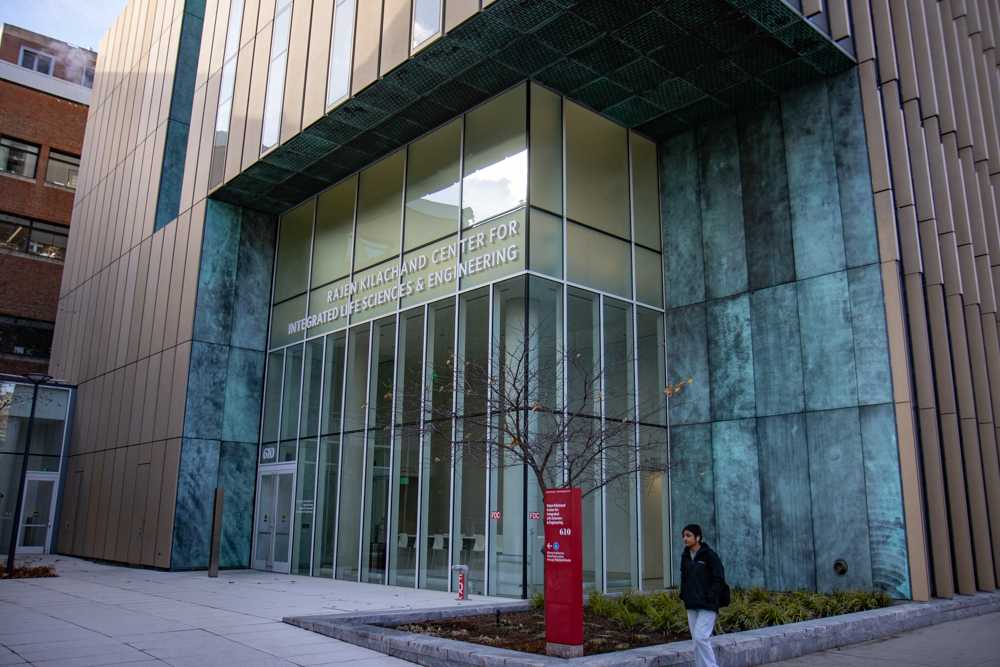Beth Israel Deaconess Medical Center announced Wednesday the expanded use of Google Glass to its entire emergency department, becoming the first hospital in the United States to do so.
Dr. Steven Horng, who specializes in emergency medicine, launched a pilot program in December 2013 for the use of Google Glass, which incorporates a small, transparent screen over one eye, a high-resolution camera and a touchscreen pad over the right earpiece. Together, these tools allow a nearly hands-free use of the device.
“Emergency medicine is a time-sensitive, information-heavy field where physicians often have to make quick decisions based on limited information,” said Dr. Terrance Lee, a resident of Horng’s who played a vital role in initiating the Glass pilot program. “Using wearable technology such as Glass allows physicians to bring up information quickly and unobtrusively.”
John Halamka, chief information officer for BIDMC, publically announced the expansion Wednesday on his blog.
“We’ve been working over the past [four] months on pilots that I believe will improve the safety, quality and efficiency of patient care through the integration of wearable technology such as Google Glass in the hospital environment,” he said. “I believe that wearable tech enables providers to deliver better clinical care by supporting them with contextually-relevant data and decision support wisdom.”
Lee said the process of using Google Glass allows doctors to view patient data while simultaneously assisting the patient.
“Outside each patient room is a QR code specific to that room number,” he said. “Physicians scan the QR code with Glass and it will pull up the patient data for that room number, including vitals, laboratory values, documentation by nurses and doctors and pending orders. The clinician can then speak to the patient, examine the patient and perform procedures while reviewing patient data.”
Google Glass and its successors have the potential to change the way physicians and clinicians approach patient care, said Dr. Jennifer Joe, editor-in-chief of MedTech Boston, which covers the medical innovation scene in Boston.
“This is a game-changer,” she said. “Google Glass allows a clinician to essentially have a computer and thus electronic health record running at all times that is impressively unobtrusive to clinical work flow.”
Joe said Google Boston’s headquarters will host a Google Glass Challenge on April 23, which will feature several keynote speakers, including Joe and Horng. Afterward, doctors from across the country will present their ideas concerning the ways Google Glass can be used in the medical field.
“We’ll hear directly from the clinicians experiencing the [tech] problems and their proposed solutions,” she said. “Equally as important, leading clinical and technical experts, including Google executives themselves, will give feedback and push the ideas to the next level. There’s nothing more explosive than bringing together diverse experts to think through and fix problems.”
Joe and Lee could not reveal much about the ideas being presented at the Challenge, but said they agreed it will be greatly beneficial and the future looks bright for incorporating Google Glass and similar devices into the field of medicine.
“Glass will be a useful tool in our armamentarium as our goal as physicians is always to deliver the best, safest care to our patients,” Lee said. “As new devices emerge every year, I look forward to seeing how we can carefully and intelligently apply new technology to improve patient care.”
Several residents said Google Glass could be applicable and helpful in the fast-paced hospital atmosphere, giving physicians the ability to multitask.
“If [Google Glass] frees up doctors’ hands, that’s always good when it comes to patient care,” said Jake Epstein, 32, of the North End.
Sarah Foley, 43, of South Boston, said this technology could also be used when doctors have to instruct their residents while also serving the patients.
“Google Glass has a video camera on the front … I can see physicians maybe using it to teach,” she said. “Viewing a procedure through a doctor’s eyes must help a lot if you’re a [medical] student.”
Katelyn McGovern, 27, of Charlestown, said she was surprised to see Google Glass being used in this way, but new ideas are always welcome in an evolving medical field.
“I’ve never thought about its use in medicine before,” she said. “When it starts becoming more widely available, hopefully it could be used in even more hospitals. As long as it helps doctors better treat their patients, it’s great. There’s always room for improvement [in medicine].


























































































































